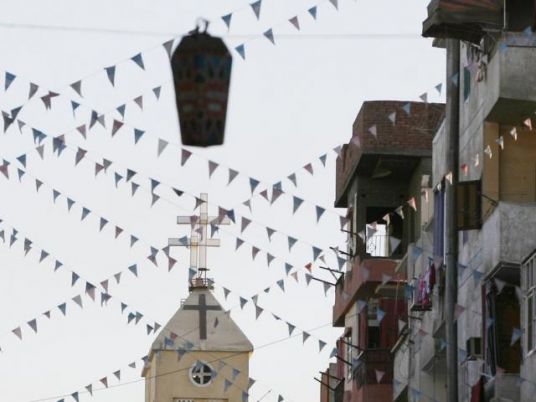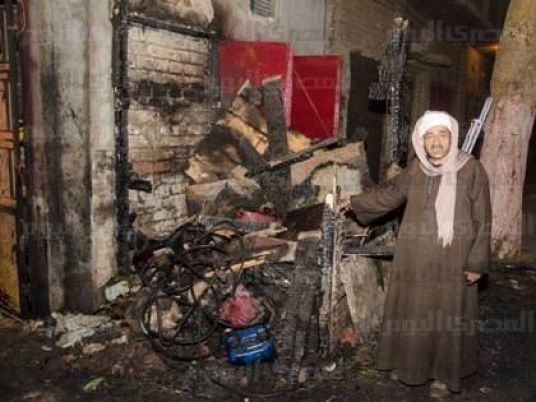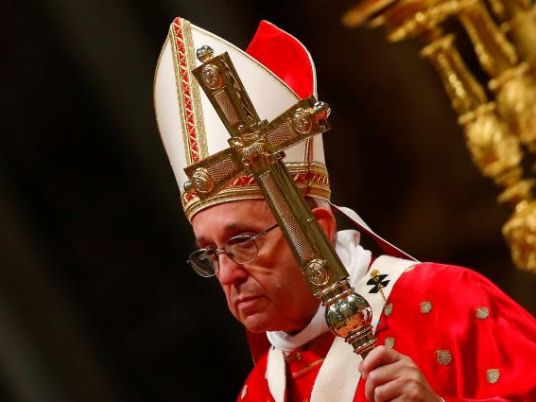Court proceedings into the Naga Hammadi slayings that took place earlier this year in Upper Egypt have been adjourned–once again–until 18 April.
Three suspects were detained the day after the murder of six Christians and one Muslim security guard on 6 January, Coptic Christmas eve. Qershi Abul-Haggag, Mohamed Hassam el-Kamouni and Hindawi Mohamed Sayed were all referred to the State Security Court, which handles cases related to terrorism and national security.
The attacks have been portrayed as acts of sectarian violence rather than mere criminal offences. Human rights watchdogs, meanwhile, express concern over the trial’s impartiality.
“Until now, we can tell that the judge is going through all needed procedures given the fact that this is a State Security court, the verdicts of which cannot be appealed,” Ishaq Ibrahim, a lawyer with the Egyptian Initiative for Personal Rights (EIPR), told Al-Masry Al-Youm. Ibrahim has been attending the court hearings to determine the degree of fairness with which the trial is conducted. “So far, the judge is doing everything to eliminate doubts.”
At today’s hearing, the court decided to refer all arms and ammunition found at the crime scene to forensic authorities to establish that they did in fact correspond with the victims’ injuries.
According to Ibrahim, a seeming lack of coordination has surfaced between the three defendants’ lawyers.
“There seems to be a disjunction in the interests of the defendants’ lawyers,” said Ibrahim. While lawyers for Sayed, the third defendant, insist that Bishop Kirolos of the Coptic diocese be summoned by the court to testify, lawyers of the first defendant, el-Kamouni, say there is no need for Kirolos’ testimony. During initial investigations, Sayed was the first to confess having committed the attacks, while the other two defendants initially denied culpability.
In testimony before the prosecutor in Upper Egypt, Bishop Kirolos did not say he had been directly threatened by the attacks. He only said that there had been "general tension" and that some young Christian men had received mobile phone messages saying they would soon receive their "Christmas gifts." Before the attacks, however, he had told Al-Masry Al-Youm that he had personally been threatened and had been asked to hold Christmas mass earlier than usual.
“The court adjourned the case until all witnesses are summoned to give their testimony. Bishop Kirolos could very well be one of the witnesses. We do not like the strategy of pointing the court to particular witnesses. We do not feel it’s the right thing to do,” Alaa’ Eddin Abuzeid, el-Kamouni’s lawyer, told Al-Masry Al-Youm. He also said he had demanded the referral to the highest forensic authorities to determine the exact timing of the victims’ death, considered key information for his client.
Ibrahim said that among the witnesses to be summoned at the next hearing would be the Muslim policeman and barber who were riding in the same car in which a fellow Muslim church guard was also killed. “Senior lawyers are also expected to be heard in the next session, such as Sameh Ashour and Maged Hanna,” Ibrahim said.
“What we care about is that the trial is fair and does not bow to any pressure,” said Ibrahim. "We hope the defendants get their natural right to defend themselves."
But politicization of the trial is a foregone conclusion, according to defense lawyers. “I don’t question the integrity of the State Security Court judge,” said Abuzeid. "But since this is a court where there is no appeal and only a formal grievance can reverse the verdict, political considerations can change the course of this grievance."
Abuzeid similarly complained about the fact that he does not enjoy the right to deliberate with his client. “All the defendants are under siege in Assiut [in Upper Egypt], which has made it difficult for us to communicate with them.”
Although the Coptic Church has welcomed the case’s referral to a State Security court, human rights organizations fear these courts fail to provide justice to all parties involved.
In a press release, EIPR indicated that State Security courts neither respond to the rights of the plaintiffs, nor to those of the defendants. According to the longstanding Emergency Law that regulates these courts, the families of victims do not have the right to demand compensation or to make claims or demands at the trial. Similarly, defendants do not have the right to appeal the verdict.
The EIPR reiterated its rejection of the death penalty as a potential court ruling on the basis that such a punishment represents an "inhumane response" that contravenes the International Convention of Political and Civil Rights.



